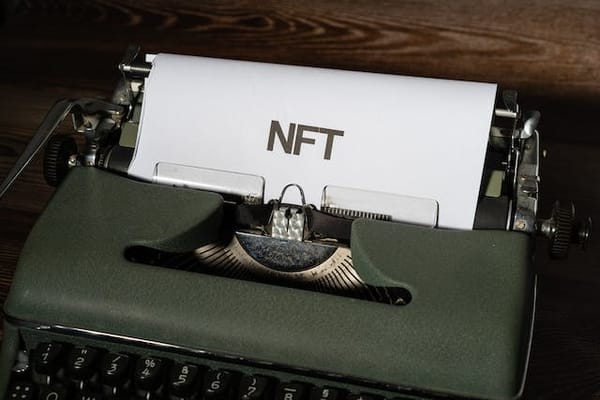Financial Literacy Month: Boosting Your Money Knowledge
Boost your money knowledge during Financial Literacy Month with our guide. Unlock essential insights and practical tips to enhance your financial literacy and secure your future

As we delve into Financial Literacy Month, what better time to reevaluate your financial strategies and brush up on the knowledge that could significantly impact your future? Understanding the concept and intricacies of personal finance is critical for achieving economic stability and resilience, and the annual focus on financial literacy presents a refreshing opportunity for millennials, young professionals, and financial beginners to bolster their money management skills.
Whether you’re just starting on the path to financial independence or looking to fine-tune your current practices, this comprehensive guide aims to equip you with the foundational financial literacy you need. From grasping the importance of money skills to steering clear of common financial pitfalls, we'll navigate the broad spectrum of financial literacy and provide you with practical tips to seize control of your economic destiny.

Why Financial Literacy Matters
Financial literacy isn't just about optimizing your income or saving for a rainy day. It's a critical life skill that empowers individuals to make informed decisions concerning their money. With the knowledge of how to budget, invest, and navigate debt responsibly, individuals can create lasting financial security that paves the way for future wealth.
Moreover, as you build your financial literacy, you'll notice its profound effects on not only your personal finances but also your independence and quality of life. Avoiding the pitfalls of financial illiteracy can lead to better mental health, reduced financial stress, and the ability to partake in opportunities that a sound financial situation allows.
Key Areas of Financial Literacy
There are several key areas one should focus on when aiming to improve financial literacy. Here are some of the most critical domains:
Budgeting and Saving
The cornerstone of financial literacy, budgeting involves tracking your income and expenditure. A well-crafted budget helps you to live within your means, save for essential goals, and avoid bad spending habits. It's about planning for both the long-term and the unexpected.
Debt Management
Understanding the various types of debt, their implications, and how to manage payments effectively is essential for maintaining financial health. This involves staying on top of interest rates, tackling debt systematically, and avoiding the pitfalls of borrowing beyond your means.
Investing Basics
While investing may seem complex, its fundamentals are quite simple. Getting a grasp on terms like stocks, bonds, and mutual funds, and understanding the principles of risk and return are steps towards securing your financial future.
Understanding Credit
How credit works and the factors that influence your credit score are integral to your financial journey. Knowledge of credit can open or close doors when it comes to securing loans, renting properties, or even employment opportunities.
Tools and Resources for Financial Education
Fostering financial literacy requires access to the right tools and resources. Fortunately, there's a vast array of educational materials available for anyone looking to bolster their money management skills.
Online Courses and Tutorials
Platforms like Coursera, Udemy, and Khan Academy offer a plethora of courses on personal finance, often for free or at minimal cost. These courses can provide a comprehensive, structured approach to learning about money management.
Personal Finance Apps
Technology can be a game-changer in the quest for financial literacy. Apps like Mint, YNAB, and Personal Capital offer tools to track spending, create budgets, and visualize your financial situation.
Books and Podcasts
There's no shortage of books and podcasts from financial experts that cater to audiences of all levels. Whether you're a beginner or an experienced investor, you're bound to find literature or audio content that speaks to your financial education needs.

Common Financial Mistakes to Avoid
Steering clear of financial challenges can be just as important as embracing positive financial behaviors. Here are several common mistakes that stand as roadblocks to solid financial practices:
Overspending and Impulse Buying
The ease of online shopping and the seduction of sales can lead to overspending. Learning to resist impulse purchases and stick to a budget is crucial for maintaining control over your finances.
Ignoring Financial Goals
Without direction, your financial journey has no purpose. Ignoring the setting of clear financial goals can lead to aimless saving and spending, hindering progress and causing dissatisfaction.
Failing to Track Expenses
A key practice in effective money management is keeping a close eye on your finances. Failing to track expenses can result in unintentional overspending and poor decision-making when it comes to saving and investing.
Not Having an Emergency Fund
An emergency fund is the cornerstone of financial security. Without one, unexpected expenses can quickly lead to debt and financial instability. It's a protective measure every individual should have in place.
Tips for Improving Financial Literacy
Enhancing your financial literacy doesn't have to be an overwhelming task. By following these practical tips, you can steadily build your money knowledge and enjoy the benefits of a more secure financial future:
Start with Small Steps
Begin by tackling one aspect of your finances at a time. Whether it's creating a simple budget or learning about compound interest, small, incremental steps can lead to significant improvements in your overall financial literacy.
Seek Professional Advice
Don't hesitate to consult with a financial advisor, especially when dealing with complex financial matters. A professional's insight can provide clarity on important decisions and help you avoid costly mistakes.
Stay Informed and Updated
Financial literacy is not a one-time achievement but a continuous journey. Stay abreast of changing financial landscapes, investment advice, and new tools and resources that can enhance your financial know-how.
Practice Good Financial Habits
Repetition is key in forming good financial habits. From consistent budgeting to regular investing, incorporating these practices into your routine can lead to a more natural and effective approach to money management.
Conclusion
Financial literacy is an ongoing endeavor that can always be improved upon. As you take the time to educate yourself, remember that the knowledge you gain isn't just helpful—it's absolutely critical to your financial health and overall well-being. As you navigate this journey, you'll find empowerment in the fact that you're not just a passive observer of your financial story; you're the author, ready to pen a tale of financial success and security. Embrace the tools, resources, and tips provided in this guide as you embark on a path to greater financial knowledge and control. Your future self will thank you.



